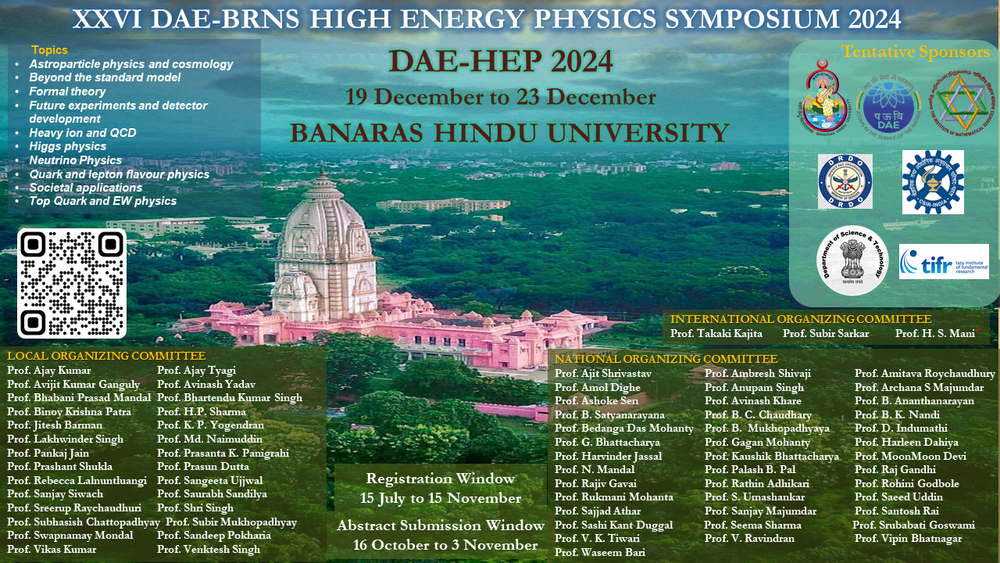Speaker
Description
Cosmic muons are capable of producing Cherenkov radiation, a form of electromagnetic radiation that
is produced when a charged particle travels superluminal through a transparent dielectric medium. A
Cherenkov detector which ignores the directionality of the radiation and solely integrates all particles moving
above a set threshold velocity is known as a threshold Cherenkov detector. Since, the minimum particle
energy required to produce Cerenkov radiation is a function of the index of refraction of the radiating
material; the threshold particle energy can be varied if the radiating material is a gas. A gas threshold
Cherenkov detector thus offers a direct and convenient means of measuring the integral intensity of cosmic
ray muons at different energies by varying the pressure in the chamber.
To determine the shape of a portion of the cosmic ray muon energy distribution, we have constructed a
threshold Cherenkov detector sensitive to muons with energies between 1 and 5 GeV. We are measuring the
integral muon intensity at nitrogen pressures of 0.5 to 15 atm. The data is fitted on the prediction of the
CORSIKA simulation package. Through this, we will be able to infer the feasibility of using a threshold
Cherenkov detector to accurately measure the shape of the cosmic ray muon energy distribution from 1 to
5 GeV.

